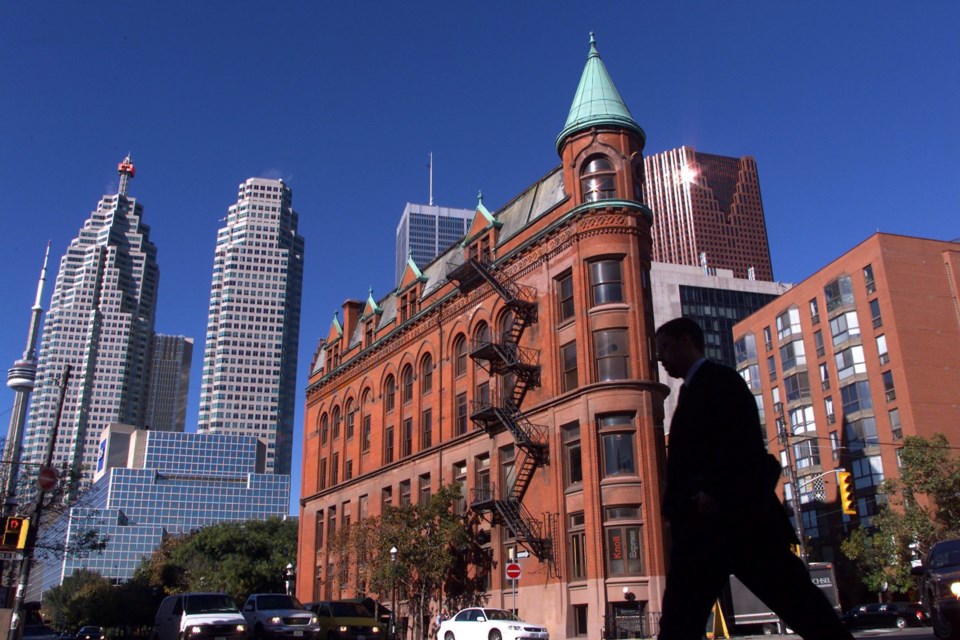Cities across the province are breathing a collective sigh of relief after the Ford government gave them more time to decide which historic buildings should get full heritage protections.
At the same time, however, the province is also tightening the rules by closing a loophole that would've let municipalities give too many buildings heritage status. Properties under these protections can be harder to redevelop, potentially restricting land that could be available for potential home building, one lawyer said.
In late 2022, former housing and municipal affairs minister Steve Clark introduced Bill 23. It made scores of changes to Ontario's land-use planning regime. One of the more under-the-radar measures was to address municipalities going overboard with heritage designations, making it much harder to turn old buildings into housing, for example.
Municipalities can "list" a property on their heritage register — which provides a modicum of protection — without having to fully "designate" it as a heritage property, affording it full protection under the Ontario Heritage Act.
Bill 23 forced municipalities to make a choice. By Jan. 1, 2025, cities had to decide whether to designate a property — giving it full protection — or the province would remove it from the list, and it couldn't be put back on for at least five years.
Some municipalities got creative, according to Michael Polowin, a lawyer with Gowling WLG who specializes in municipal law.
"What municipalities — and using Ottawa as an example — were clearly intending to do was to get most of the 4,600 properties off of the register before Jan. 1, 2025, and then it was their intention to put many of them back on the register after Jan. 1, 2025, thereby creating an end-around," he said.
Now, under new rules proposed in the recently introduced Homeowner Protection Act, the province plans to extend the deadline to Jan. 1, 2027.
Other measures in the bill mean "if you try the end-around by removing it before 2027, you're blocked for a period of five years from putting it back on the register," Polowin said.
Ottawa leads the province with around 4,600 properties on the heritage list. Toronto is a close second, with around 4,000 on its list.
Both were concerned a 2025 deadline didn't give them enough time to review their lists.
"With the earlier deadline of Jan. 1, 2025, it would have been unfeasible for city staff to research, evaluate and designate the thousands of listed properties ... As such, the city welcomes the deadline extension to Jan. 1, 2027, as it will allow staff to prioritize the listed properties on a citywide basis and to designate a greater number of properties through council approval, prior to the deemed removal date," City of Toronto staff said in an email statement.
"The city supports the extension of the register review timeline to January 2027," said Lesley Collins, program manager of heritage planning at the City of Ottawa.
Both cities said they're taking more time to review how the "end-around" provisions affect their ongoing evaluations of their heritage lists.
The new rules are intended to "alleviate administrative pressures and encourage municipalities to be both proactive and deliberate in the designation of properties with inherent heritage value," said Dakota Moinz, spokesperson for Citizenship and Multiculturalism Minister Michael Ford.
Nancy Matthews, vice president of communications at Community Heritage Ontario, said it takes a lot of time, effort, and money to shepherd a building through the heritage designation process, so she welcomes the extra time.
Matthews, however, said her organization strongly objects "to the entire proposal requiring listed properties to be designated or removed."
"The government claims this will assist the more homes faster initiative ... Rather than removing the protection from listed heritage properties on the off chance that a developer would purchase and demolish them to make room for affordable housing, the government would achieve far more positive social and environmental benefit by offering incentives for these same properties to be retrofitted and adapted," she said.




